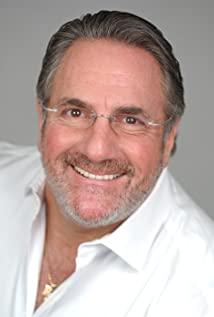See you late. In fact, it's not too late. It's not necessarily a good thing to meet too early, and it's not necessarily a good thing to understand. A seriously underrated movie. This ending is a bit "politically correct" in the film industry, and the happy ending seems a bit overkill. In addition, the heroine's spiritual temperament is really not in line with the overall quality of the film.
Back to topic. Accepting fate or fighting against fate is one of the eternal propositions of human beings. But in fact, "fighting against fate" is not one of fate's arrangements. The arrangement of fate, at first glance, is against free will, giving people a natural disgust. But from another perspective, the arrangement of fate itself contains a kind of rational power, a kind of "should be" meaning, and it is the most optimal result. Just like David could have been the President of the United States, and his girlfriend Elise could have been world-famous for dancing, but their combination would lead to mediocrity, so this combination is an irrational and unbeautiful combination. Is love bound, and then bound to each other in lingering with each other? Or, should it bring each other's growth and promote the maturity of each other's development? Essentially, it's not that hard to choose. But people have never been rational animals, just like the one kiss in the men's toilet, which seems unreasonable to conservatives. By the end of the movie, on the rooftop, beleaguered, David and Elise still kiss, but can decades of life sustain this passionate peak experience, as moving as it is. Human hormones come and go as fast as they go. The more violent they come, the faster they go. It seems that "the disease is healed like a thread". Whether such an emotional state can be maintained for decades is a question mark. However, the growth and maturity of each other can be seen and touched, and it will not fade away.
Secondly, free will is also meaningless in Marx's view, at least it is not comparable to cognitive freedom. Freedom of will is not true freedom, just like "what toothbrush to use" and "what drink to choose for lunch" in the film "When there is only one toothbrush to choose from, how can human beings have freedom of will? In other words, when there are 100 toothbrushes to choose from, how important is human freedom of will?
Thirdly, as far as the freedom of human will is concerned, from the perspective of biology, there are nothing more than two results, one is random, which is no different from animals; the other is a choice based on personal preference, but this further falls into In the predicament of fate arrangement, after all, the preferences of human beings depend to a large extent on the influence of their own environment. Isn’t this freedom of will “in the final analysis derived from material living conditions” severely restricted by class and acquired environment freedom? Is the inner freedom determined and limited by the outside, still freedom, or the freedom that most people really want?
Thirdly, as the planning bureau personnel in the film said, "human nature is not mature enough to control important affairs". More than 99.99% of the world's people live in the mundane life every day. They are swallowed up by various affairs and information every day. It is difficult to really contemplate deeply. The decision is hard to say that it is the result of careful consideration, and it often means a compromise on the reality of life and a game of reality. Just like the "Space X" program, isn't it a great innovation of human beings as a species? It can really help human beings to realize the cognitive freedom that Marx said is more important than the freedom of will, and in the long run will help human beings to pursue happiness, but the resistance it faces is also attracting worldwide attention. If they don't fly into space, then what human beings face can only be sitting on the earth, eating the mountains and the sky, digging their own graves, and carrying out the daily routine of boiling frogs in warm water.
As far as fate itself is concerned, accepting the arrangement of fate is not necessarily a bad option, just like introverts are not suitable for sales jobs, this does not mean that such people must not be able to do this kind of work, but Not suitable. If human beings can truly recognize their own destiny (if it really exists) and follow the trend, their achievements will be immeasurable, just as David could have been the president of the United States. As far as the negative teaching materials are concerned, David's father and brother have certain ideals in life, but they did not follow the trend of fate, missed the opportunity, regretted it for the rest of their lives, and the worst thing was that they became Xianglin's wife. After marriage, as the hormones gradually recede, how can the original eachother be worth the daily trivial matters, coupled with the psychological hints of "I could have" from both parties, the relationship is even more unreliable.
More when available.
View more about The Adjustment Bureau reviews











